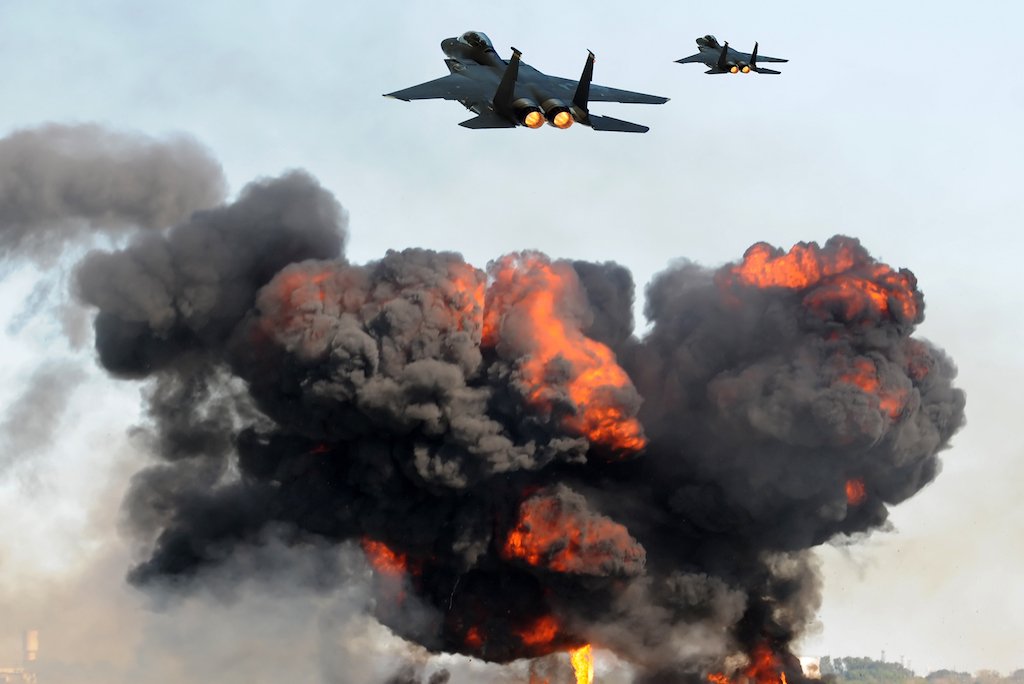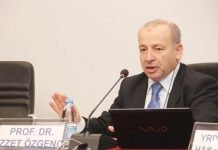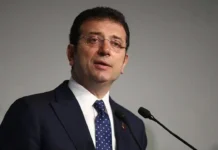Turkish warplanes have launched a new wave of bombing of Kurdish militia targets in Syria’s Afrin region, the Turkish General Staff said on Friday, and a monitoring group said the strikes killed seven Kurdish militants and two civilians.
The local government in Afrin accused Turkey of creating a “humanitarian crisis,” by killing at least 160 people, wounding 395 more and leading to over 60 thousand people to be displaced since its offensive began on January 20. Ankara has denied the charges.
Hevi Mustafa, co-president of the Executive Council of the self-declared Afrin canton, told a press conference attended by the head of the region’s Health Committee, Angela Rasho, that among those killed were 26 children. She said the Turkish army was also systematically targeting infrastructure, including mosques, schools, dams, water pumping stations, and food depots.
Mustafa called on the United Nations Security Council to take a firm stance to put an end to the human suffering and rights violations at the hands of Turkey and its Islamist proxies staging a fierce assault on the isolated region since January 20.
Turkish aerial campaigns on Afrin resumed Thursday night for the first time in four days, apparently after Russia, which is controlling the Syrian airspace there, gave the green light again. Airstrikes hit central Afrin and the US-backed Kurdish People’s Protection Units (YPG) while Ankara stated it had killed over one thousand ‘terrorists,’ including fighters of the Islamic State of Iraq and the Levant (ISIL), a radical Islamist terror group that has never had a presence in the region.
Meanwhile, one of two British ISIL militants known for their role in the torture and killings of Western hostages in Syria was aiming to reach Turkey when he was captured by Kurdish-led forces last month, a Kurdish official said on Friday.
US officials said on Thursday that the Syrian Democratic Forces (SDF), a US-backed militia force, had captured Alexanda Kotey and El Shafee ElSheikh, two of four militants known as the “Beatles” for their English accents. US and European officials said on Friday that Britain, the United States and officials in the region are discussing what should happen with the two militants.
“Together with our coalition partners, we are still considering options regarding ElSheikh and Kotey, but rest assured there is a common intention to hold anyone accountable who commits acts like those they are alleged to have committed,” said a spokesman for the US National Security Council. British government officials declined to comment.
Senior SDF official Redur Xelil told Reuters that Kotey was captured in a rural area of Raqqa province on Jan. 24.“He was intending to escape toward Turkey with cooperation and coordination with friends of his on the Turkish side,” Xelil said. “He is now under investigation with us,” he said. Xelil gave no information about the second militant, Elsheikh.
Xelil has also said on Friday that “We have not received any official request from any international party to hand over the two prisoners.” Any such request would be studied, he added. Xelil also confirmed that officials from the US-led coalition against ISIL had taken part in the questioning of the two captured Britons.
A senior security official in Turkey, however, accused the SDF of anti-Turkish propaganda, saying it was “nonsense” that an ISIL militant would say they were going to Turkey, and that Ankara was taking every step to eliminate ISIL militants in Turkey. “It is not that easy to cross the border without permission, there is a wall as well,” said the official.
The official said that “Turkey is open to joint cooperation, including intelligence, with all its international partners. Turkey has been fighting with IS in every way both inside the country and abroad.”
The New York Times reported on Thursday that the British government had revoked the British citizenship of both Kotey and ElSheikh.
Turkey’s air and ground campaign in northwest Syria against the Kurdish YPG militia has opened a new front in Syria’s multi-sided war and further strained relations with NATO ally Washington. The air strikes destroyed 19 targets including ammunition depots, shelters and gun positions, the armed forces said in a statement without specifying when they were conducted. The raids began at midnight, state-run Anadolu news agency said.
At least 1,062 PYD/PKK and allegedly ISIL militants have been “neutralized” since the beginning of “Operation Olive Branch” in Syria’s Afrin, said also the Turkish military on Friday. Turkish authorities often use the word “neutralized” in their statements to imply the militants in question either surrendered or were killed or captured.
Meanwhile, a Turkish soldier was killed in a rocket attack by PKK in Turkey’s eastern Hakkarı province, the military said Friday. The Turkish General Staff said that the soldier was killed in an attack targeting Zer Tepe military base in Çukurca district of Hakkari.
According to a report by Turkey’s state-run Anadolu news agency, Turkish military forces and Free Syrian Army (FSA) militants on Friday captured 5 more villages from PYD/PKK in northwestern Syria. The report said that the villages of Nesriyya and Dukkan in Jandaris, western Afrin were cleared of PYD/PKK militants during the operation.
Turkish troops and the FSA also captured the Nesriyya Hill. Later in the day, the villages of Iskan and Juqali Fawqani were taken under control. The Orta Çakallı village in the town of Shaykh al-Hadid, western Afrin, was also captured by Turkish troops and FSA militants.
It was also reported by Reuters on Friday that US Secretary of State Rex Tillerson will press Turkey to rein in its military operation in northern Syria during a visit to the NATO ally next week, a senior US official said on Friday.
Briefing reporters on Tillerson’s Feb. 11-16 trip to Jordan, Turkey, Lebanon, Egypt and Kuwait, US officials said there would be tough conversations at each stop. The United States and Turkey, allies in the NATO, are deeply divided over a Turkish military air and ground operation into the Afrin.
US support for the Kurdish-led forces has infuriated Turkey, which views growing Kurdish power as a security threat along its frontier. Ankara sees the YPG as an extension of the outlawed Kurdistan Workers Party (PKK) that has waged a three-decade-long insurgency in Turkey’s mainly Kurdish southeast.
“We are urging them to show restraint in their operations in Afrin and to show restraint further along the line across the (border) in northern Syria,” a US official told reporters in a conference call. “That’s going to be a difficult conversation.”
Speaking of US-Turkish relations, he added that “Look it’s difficult. The rhetoric is hot. The Turks are angry, and this is a difficult time to do business but it’s our belief that there are still some very fundamental underlying shared interests.”















